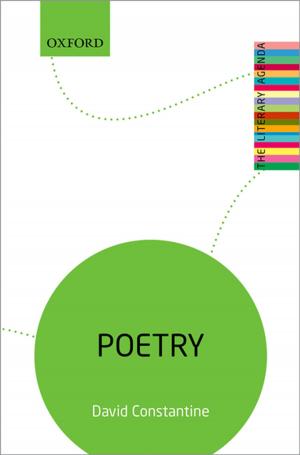In Our Own Image
Anthropomorphism, Apophaticism, and Ultimacy
Nonfiction, Religion & Spirituality, Other Practices, Theism, Philosophy| Author: | Wesley J. Wildman | ISBN: | 9780192548054 |
| Publisher: | OUP Oxford | Publication: | December 15, 2017 |
| Imprint: | OUP Oxford | Language: | English |
| Author: | Wesley J. Wildman |
| ISBN: | 9780192548054 |
| Publisher: | OUP Oxford |
| Publication: | December 15, 2017 |
| Imprint: | OUP Oxford |
| Language: | English |
In Our Own Image is a work of comparative philosophical theology. It is a study of the roles anthropomorphism and apophaticism play in the construction of conceptual models of ultimate reality. Leading scholar Wesley J. Wildman considers whether we create our ideas of God. He offers a comparative analysis of three major classes of ultimacy models, paying particular attention to the way those classes are impacted by anthropomorphism while tracing their relative strengths and weaknesses. Wildman provides a constructive theological argument on behalf of an apophatic understanding of ultimate reality, showing how this understanding subsumes, challenges, and relates ultimacy models from the three classes being compared. He describes and compares competing ultimacy models, fairly and sympathetically. The conclusion is that all models cognitively break on the shoals of ultimate reality, but that the ground-of-being class of models carries us further than the others in regard to the comparative criteria that matter most.
In Our Own Image is a work of comparative philosophical theology. It is a study of the roles anthropomorphism and apophaticism play in the construction of conceptual models of ultimate reality. Leading scholar Wesley J. Wildman considers whether we create our ideas of God. He offers a comparative analysis of three major classes of ultimacy models, paying particular attention to the way those classes are impacted by anthropomorphism while tracing their relative strengths and weaknesses. Wildman provides a constructive theological argument on behalf of an apophatic understanding of ultimate reality, showing how this understanding subsumes, challenges, and relates ultimacy models from the three classes being compared. He describes and compares competing ultimacy models, fairly and sympathetically. The conclusion is that all models cognitively break on the shoals of ultimate reality, but that the ground-of-being class of models carries us further than the others in regard to the comparative criteria that matter most.















